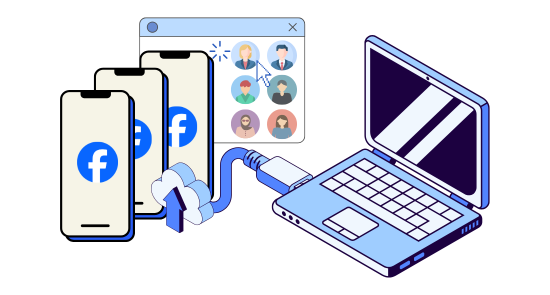
Is It Cheaper to Buy a Second Home? Pros and Cons You Must Consider
Owning a second home is on the wish list of many people, whether for vacation getaways, rental income or long-term investment. But before making the jump, there’s one big question: Is it cheaper to buy a second home? A second property can provide financial benefits including appreciation and passive income, but it also comes with extra responsibilities and costs that may not seem evident.
Note: If you are looking for a house or second-hand property in Bangkok and its metropolitan area, Bangkok Assets Company is a trusted provider with over 14 years of experience, ready to assist and support you.
Evaluate the pros and cons of buying a second home before you make such a large investment. This article looks at the major pros and cons to help you decide whether purchasing a second home is a sound financial decision for you.
Pros of Buying a Second Home
Property prices and Investment
One of the main benefits of owning a second home is the possibility of property appreciation. Your second home could also appreciate the value lBy choosing a location that has strong real estate growth potential, your investment can potentially appreciate significantly in value over time.
Locality: Prices of properties located in emerging cities or high-demand vacation hot spots tend to rise quicker.
Inflation Hedge: Real estate has long been seen as a hedge against inflation because property values tend to increase over time.
Owning several properties may add to my long-term wealth.
For building up capital, doing your research going into the market and ensuring you buy in a promising area is key.
Rental Income Potential
If you don’t intend to spend all year in your second home, renting your place out can assist in covering mortgage and maintenance costs.
Short-term rentals: Leveraging platforms like Airbnb allows homeowners to rent their units to vacationers for a high return.
Long-Term Tenants: Rent your second home to a long-term tenant for a steady and predictable source of income.
Interview Questions That Matter: Seasonality: Homes in sought-after tourist locations can earn substantial income in peak season.
Managing a rental property, though, takes time and energy. You should research local rental regulations and potential income before relying on this strategy.
Tax Benefits
Owning a second home may offer tax breaks that can help decrease your overall cost.
Mortgage Interest Deductions: If that second home is not being rented out for more than 14 days in any given year, mortgage interest and property taxes may be deductible.
Rental Property Deductions: If you rent out the home, you could be eligible for more tax breaks on maintenance, repairs and depreciation.
Long Term Capital Gains: When selling, holding onto a property for the long-term allows you to benefit from lower capital gains tax rates.
Speaking with a tax professional can help you get the most out of these benefits based on your individual financial situation.
Personal Use and Lifestyle Advantages
Having a second home gives you a private escape to go to when you need to decompress.
Vacation Escape: No more booking (and then canceling) hotels and scrambling to figure out where to go.
Retirement: A second home may allow for retirement in a different area.
Family Fun: Owning an additional home means more family time, and you will not have to worry about logistics of finding a place to stay.
If your primary goal is personal enjoyment, you should select a second home in a location that reflects your lifestyle.
Cons of Buying a Second Home
High Initial and Ongoing Expenses
A second home may be enticing, but the financial commitment could be significant.
Down Payment: A down payment of 20-25% of the purchase price is a typical requirement for second homes from lenders.
Mortgage rates: Mortgage rates for second homes are typically higher than those for primary residences.
Property taxes and insurance: Many places have higher taxes and insurance costs on non-primary homes.
HOA Fees: If the property is in a gated community or a condominium, homeowners association fees could raise costs.
Make sure these costs fit comfortably within your budget before you buy.
Challenges in Maintenance and Management
Your second home will need regular maintenance, which can be expensive and time-consuming.
Routine Maintenance: Plumbing, electrical systems, and roofing require regular maintenance.
Seasonal Care: Cold weather regions need winterizing; beachfronts may experience wear due to weather.
Property management fees: If the home is too far from your primary residence, you may have to pay for someone to manage it, incurring yet another expense.
If you are not going to visit your second home regularly, think about whether the upkeep costs and logistics are affordable.
Limited Flexibility
Owning a second home also locks up your cash and restricts your travel options.
Locked-in Vacation Spot: If your second home is your go-to escape, you may feel limited in the destinations you explore.
Challenges to Selling: If market conditions shift, it can take time to sell a second home, disrupting your financial plans.
Opportunity Cost: Money used to purchase a second home could potentially be allocated towards alternative investments or financial priorities.
Think about how a second home will fit into your long-term plans before making a commitment.
Market and Economic Risks
Real estate markets are cyclical, and purchasing a second home poses financial risks.
Property Value Declining: Your second home may also lose value if there is a crash on the property market or demand drops in the area.
Uncertain Rental Market: Local laws or an economic slump can reduce rental income potential.
Interest Rate Hikes: If you choose adjustable-rate financing, rising mortgage rates can raise your monthly payments.
However, if you carefully evaluate market trends and risks before you make the purchase, you can mitigate these concerns.
Is Buying a Second Home More Affordable? Final Considerations
So how about the cost of buying a second home? And the answer will differ based on a few financial and personal considerations. Although purchasing a second home can be a strong investment that creates income and builds long-term wealth, it also brings extra costs and responsibilities.
Thinking before you decide:
– Is everything, from mortgage to taxes to maintenance, affordable?
– Will rental income help balance costs, or cause more management?
– Do I have an investment in an area with good property appreciation potential?
- Long term strategy for the property?
Buying a second home can be a fantastic decision as long as the numbers work with your objectives and lifestyle. But if the costs and risks outweigh the potential benefits, it may make more sense to consider alternative investment opportunities.
Hence, Grit Build is a place where you can find professional services for home buyers and investors such as advice on property and financial planning.











